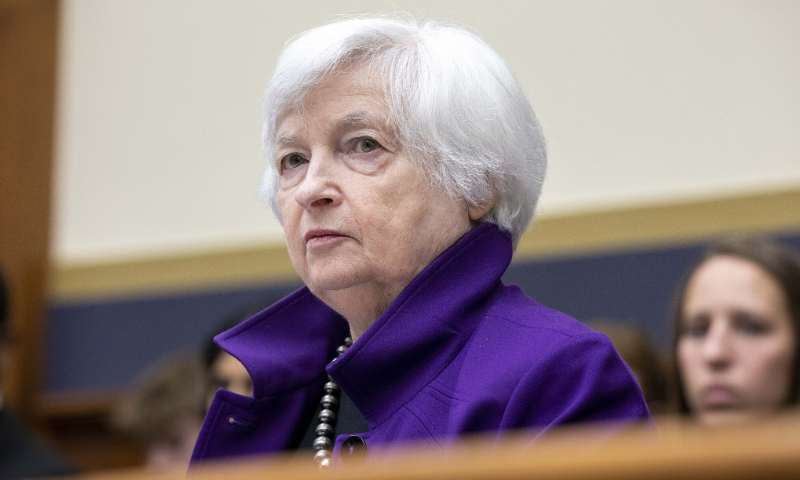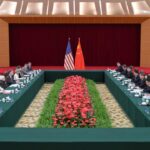Many people have noted that Yellen’s visit to China this time will last six days, which is rare for a US senior official to have such a long trip in another country. The US-based magazine Politico believes that this is a “significant development” in US-China relations. The Singaporean-based newspaper Lianhe Zaobao also describes that both China and the US have shown strong “policy resilience.”
The optimism to some extent is a reflection of the reality of US-China relations: compared to the same time last year, there has been no major disruptive event in bilateral relations this year, and exchanges between the two countries in various fields show signs of recovery.
However, it is difficult to say that Washington has much sincerity to repair US-China relations. There are doubts about whether this positive momentum can continue in the future. Although there has been no major disruptive event this year, the US has not stopped its negative actions toward China, with a stream of economic, trade, and technological containment actions against China, and an ever-growing list of sanctions against Chinese companies.
Despite Yellen’s trip in China, US Commerce Secretary Gina Raimondo and Trade Representative Katherine Tai were in Europe urging for “necessary measures” against China’s chip industry. The US’ inconsistent actions are sending complex messages to China and other countries, making it hard to believe that the US has abandoned its strategic impulse to contain China as a rival.
A detail of Yellen’s visit to China may be particularly worth the reflection of Washington’s political elites. Whether it is publicly dining out, skillfully using chopsticks, or displaying an amiable gesture, the US hopes to create a friendly image to the Chinese people.
However, many Chinese netizens don’t accept this gesture, and criticism of Washington remains strong. This is the true attitude of the Chinese public opinion, as US’ double standards have largely lost the trust of the Chinese people. In other words, it shows that the Chinese people have a “better understanding” the US now. If the US truly wants to receive any “positive signals” from China, this kind of public opinion is worth pondering.
Nevertheless, global public opinion, including US media, is almost unanimously leaning toward the positive side of US-China communication and dialogue. Most of the concerns are out of the hope for the stabilization and improvement of US-China relations. Many of the dialogue mechanisms between China and the US are actively promoted and restored by the US. This shows that the US also realizes that complete “decoupling” from China is not possible, and the US cannot afford the cost of full conflict with China.
China and the US both stand to gain from cooperation and stand to lose from confrontation. These are no empty words. Cooperation is necessary, not a choice, for both sides. Raising the cost of for US to suppress China is not our development goal, but an objective result. This includes both the intertwined interests of China and the US, as well as the intertwined interests of China and other countries.
In the call with US President Biden, Chinese President Xi Jinping pointed out several overarching principles that should guide China-US relations this year: peace must be valued, stability must be prioritized, and credibility must be upheld. Among them, the credibility is not only the expectation for China-US relations but also a requirement for the US to fulfill its commitments.
It is necessary to remind Washington that if the US’ current relatively practical policy toward China is only utilitarian and opportunistic, the damage to mutual trust will be long-lasting. After Yellen’s visit to China, hopefully there will be concrete actions from the US side to uphold the principle of credibility.




